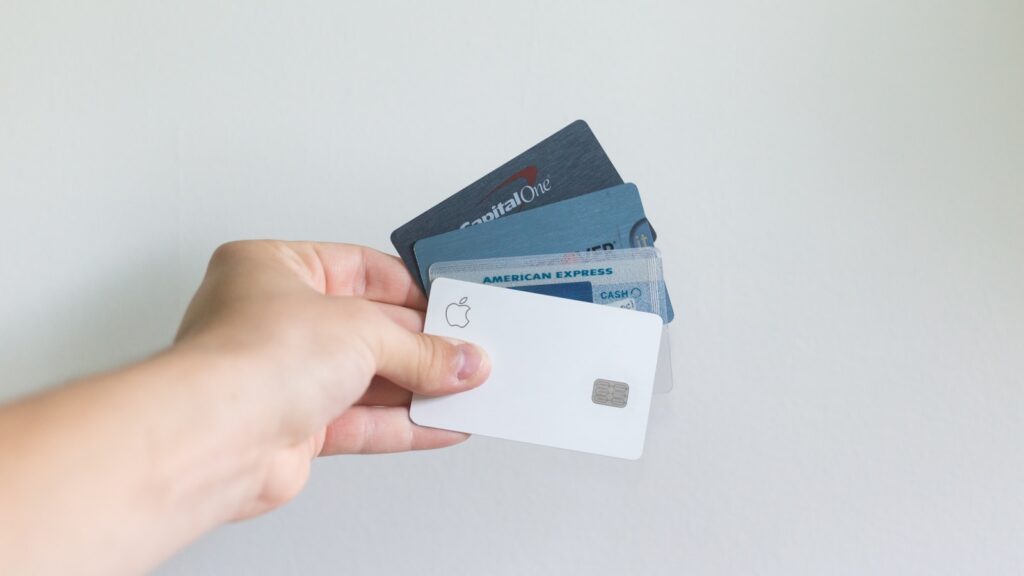Credit cards offer unimaginable convenience, whether you are shopping in luxury stores or booking a flight ticket. However, managing a credit card is not easy and requires extensive discipline to ensure you can repay the amount on time and avoid penalties. Due to this, many people often find themselves getting stuck in the cycle of credit card debt. If you are struggling with managing your debt, here are some ways to break the cycle:
1. Create a Realistic Budget
The first step on how to get out of credit card debt is to create a realistic budget. Begin by listing all your income sources and monthly expenses. Be thorough, and don’t overlook any major or minor expenses. Once you have everything, analyze your spending patterns to see where you can cut back or make adjustments. By clearly understanding your finances, you can allocate funds towards debt payoff more effectively.
2. Prioritize High-Interest Debts:
Next on the agenda is prioritizing your high-interest debts. Start by listing all your outstanding credit card debts, including their interest rates. Focus on paying off the card with the highest interest rate first while continuing to make minimum payments on the other cards. Once you have paid off that card entirely, move on to the next one with the highest interest rate. This strategy will save you from excessive stress and ensure you are making progress towards closing your debts.
3. Consider Debt Consolidation:
If managing multiple credit cards seems overwhelming, consider consolidating your debts into one lower-interest loan or balance transfer credit card. Debt consolidation allows you to combine all your debts into a single payment, simplifying your financial responsibilities and potentially reducing overall interest costs.
4. Negotiate Lower Interest Rates:
Don’t be afraid to call up your credit card companies and negotiate lower interest rates. Explain your situation honestly and ask if they can lower the interest rates on your accounts. Sometimes, all it takes is a simple phone call to save yourself some money and make debt repayment more manageable.
5. Snowball or Avalanche Method:
Two popular debt repayment methods are the snowball and avalanche methods. The snowball method involves paying off the smallest debts first while making minimum payments on others, providing a psychological boost as each balance is eliminated. On the other hand, the avalanche method focuses on tackling higher-interest debts first to save more on interest charges overall. Choose the method that suits your preferences and financial goals best.
6. Cut Back on Expenses:
Consider cutting back on unnecessary expenses to smoothen your journey out of credit card debt. Identify areas where you can reduce spending or find cheaper alternatives without compromising your quality of life. This could mean canceling unused subscriptions, preparing meals at home instead of dining out, or carpooling to save money on transportation costs.
7. Increase Your Income:
Increasing your income can significantly speed up your debt repayment process. Explore side hustles or part-time opportunities that align with your skills and interests. Consider freelancing, starting an online business, or taking up a part-time job to generate additional income every month dedicated solely to lowering your debt.
8. Seek Professional Help:
When all else fails, or if you require expert guidance tailored to your unique circumstances, consider seeking professional help from a credit counseling agency or a financial advisor specializing in debt management. They are well aware of how the system works and can assess your situation to provide effective personalized strategies for tackling credit card debt.
Boomers are cutting their credit card debt(Opens in a new browser tab)
Bottomline
Eliminating credit card debt requires commitment and discipline, but it is entirely possible with the right strategies in place. Creating a realistic budget is where you can get started first. Identifying sinkholes in your everyday expenditures will ensure you can cut down on unnecessary expenditures and direct those funds toward becoming debt-free. While it may seem frustrating initially, know that paying back your debt will instill healthy saving habits that will go a long way in ensuring you are managing your finances well. It is overwhelming right now, but sooner or later, it will all work out in your favor.
